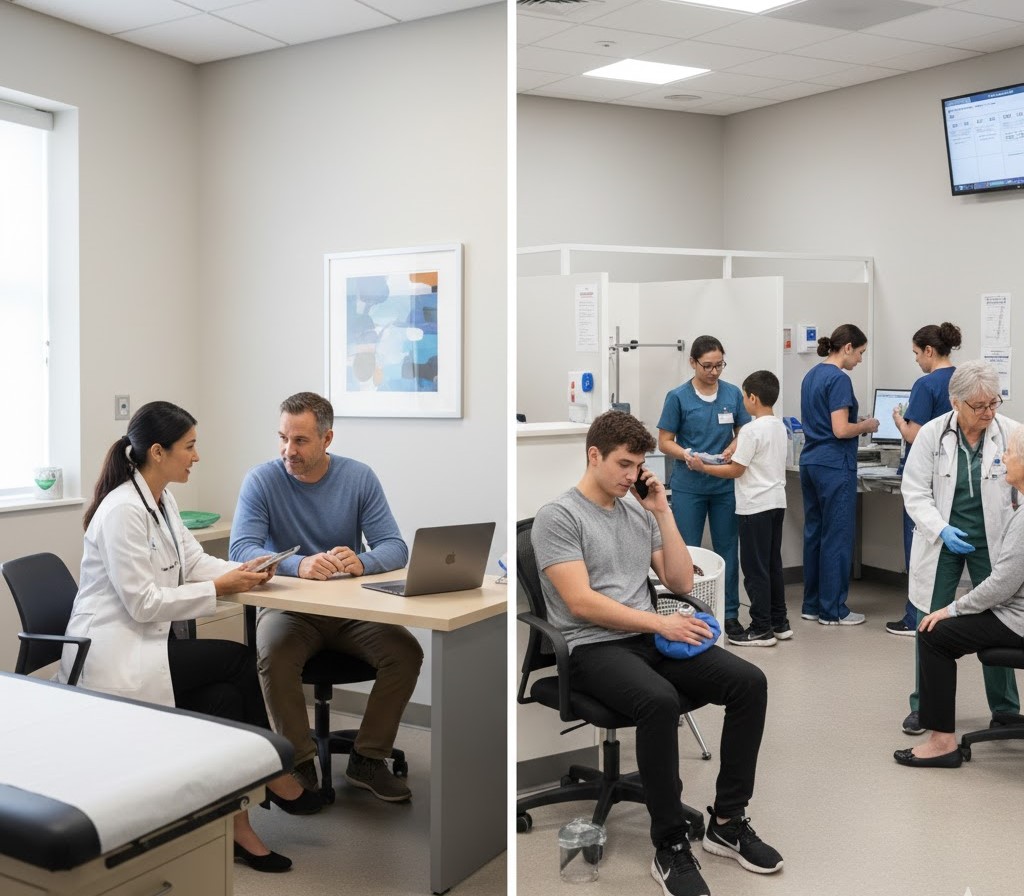Breast Cancer Awareness Month: Understanding Mammograms, Ultrasounds, and Genetic Screening
October is Breast Cancer Awareness Month! A time to focus on prevention, education, and early detection. Whether you're debating mammograms, considering ultrasound, or wondering about genetic testing, what matters most is staying informed and proactive. At QuCiL Health™, we believe that every woman's body and situation are unique, and your screening choices should reflect your personal health story.
What does the Evidence Say?
Mammography remains the gold standard for early detection of breast cancer. Here's what the major medical organizations recommend:
- The American College of Obstetricians and Gynecologists (ACOG) - recommends shared decision-making for annual or biennial mammograms starting at age 40.
- The American Cancer Society (ACS) - recommends annual screening for women aged 45 to 54, then every two years after 55.
- The U.S. Preventive Services Task Force (USPSTF, 2024) - advises biennial mammography for women aged 40 to 74.
Mammograms can detect breast cancer early, often before symptoms appear. The radiation dose used is minimal, and while the test can be briefly uncomfortable, the benefits of early detection far outweigh any short-term discomfort.
Genetic Screening: BRCA1 and BRCA2
For women with a strong family history of breast, ovarian, pancreatic, or prostate cancer or of Ashkenazi Jewish ancestry genetic counseling and testing for BRCA1 and BRCA2 mutations may be recommended. A positive BRCA test doesn't mean cancer will develop, but it does indicate higher lifetime risk. Early awareness allows for preventive steps such as increased surveillance, medication, or even risk-reducing surgery.
If you're concerned about family history, speak with your provider about testing options. BRCA testing is available through major labs such as Quest, LabCorp, and Invitae. For those who qualify, free or low-cost testing and screenings may also be available through public programs and nonprofit organizations.
Free or Low-Cost Screening Programs Available
If you are uninsured or underinsured, you may still qualify for breast cancer screening and testing programs. The following organizations provide free or affordable services:
- CDC's National Breast and Cervical Cancer Early Detection Program (NBCCEDP): Visit www.cdc.gov/cancer/nbccedp
- Susan G. Komen Foundation: Visit www.komen.org
- Bright Pink: Visit www.brightpink.org
- Dial 211 in your area for local breast screening programs and assistance.
Why Screening Matters
Screening saves lives. Detecting breast cancer early makes treatment easier and more effective. For women with dense breast tissue, adding ultrasound or MRI alongside mammography can improve detection accuracy. The key is consistency - staying proactive and informed about your options.
Takeaway
Your body, your choice but doing nothing is not an option. Perform self-breast checks monthly, schedule annual clinical exams, and discuss mammogram, ultrasound, and BRCA testing with your provider.
At QuCiL Health™, we're here to help you make informed, confident decisions about your health. Early knowledge truly saves lives.
Schedule Your Breast Health Consultation
Discuss your breast cancer screening options with our experienced providers. Serving Brookshire, Katy, and surrounding Texas communities.
Call us at (832) 930-9797 to schedule your appointment.




Community Discussion
Important Privacy Notice
For your safety and privacy, please DO NOT share:
Comments are moderated to protect patient privacy. Violations will be removed.
Share Your Thoughts
Community Comments (0)
No comments yet. Be the first to share your thoughts!